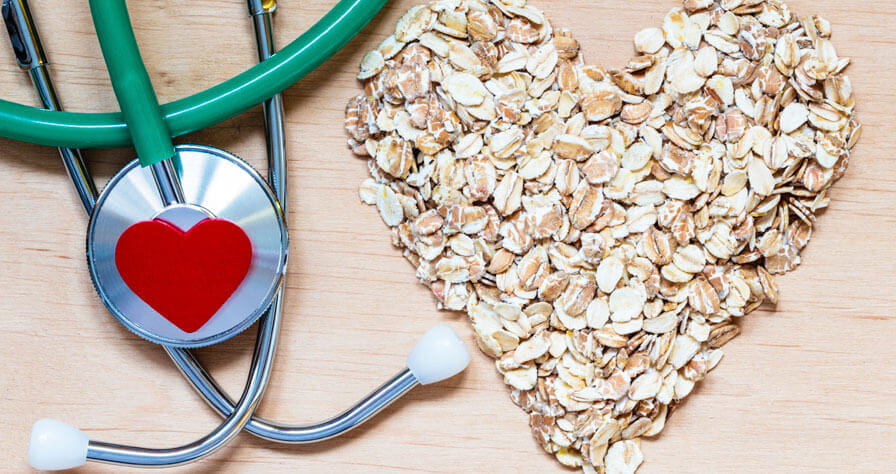Can I Have High Cholesterol in My 20s or 30s?

The short answer to this question is: “Yes.”
Everything You Need to Know About High Cholesterol in Young Adults 20 and 30 Years Old
Cholesterol is a substance made by your liver that is necessary for the production of hormones, vitamin D and bile salts, which play a role in digestion. This fat-like material has two primary forms: HDL (high-density lipoprotein) and LDL (low-density lipoprotein). HDL is known as the “good cholesterol,” and the higher your level the better.
The amount of LDL, or “bad cholesterol,” in your body should be kept low. Specifically, LDL cholesterol should be less than 100 mg/dL, although levels between 100 and 129 mg/dL are acceptable for individuals with no health concerns. An LDL reading of 130 to 159 mg/dL is categorized as “borderline high,” 160 to 189 mg/dL is “high,” and a reading of 190 mg/dL or above is considered “very high.”
High cholesterol is a condition typically associated with middle-aged and older adults. However, it is not uncommon for people in their 20s and 30s to have high cholesterol. According to the Centers for Disease Control and Prevention, more than 95 million people age 20 and older have a cholesterol level at or above 200 mg/dL.
Cholesterol Ranges for Young Adults
| Cholesterol Type | Value Range (mg/dL) | Classification | Notes |
|---|---|---|---|
| Total Cholesterol | Under 200 | Desirable | Healthy range |
| Total Cholesterol | 200 – 239 | Borderline High | Needs monitoring |
| Total Cholesterol | 240 and above | High | Harmful |
| LDL (Bad) | Under 100 | Optimal | Best for heart health |
| LDL (Bad) | 100 – 129 | Near Optimal | Acceptable without heart issues |
| LDL (Bad) | 130 – 159 | Borderline High | Elevated risk |
| LDL (Bad) | 160 and above | High | Harmful |
| HDL (Good) | 60 and above | Optimal | Protective against heart disease |
| HDL (Good) | 45 – 59 | Acceptable | Higher is better |
| HDL (Good) | Under 40 | Low | Major heart disease risk |
Total Cholesterol: Young adults with a total cholesterol under 200 mg/dL are generally considered healthy. A total cholesterol between 200 and 239 mg/dL is considered borderline high. If the total cholesterol is 240 mg/dL or above, it is considered high and harmful.
Bad Cholesterol (LDL): LDL cholesterol should be less than 100 mg/dL. LDL levels of 100-129 mg/dL can be acceptable for young adults without heart conditions. An LDL level of 130-159 mg/dL is considered borderline high, while 160 mg/dL and above is considered high and harmful.
Good Cholesterol (HDL): Young adults may need HDL levels of more than 45 mg/dL. The optimal levels for HDL is 60 mg/dL or above. Alternately, an HDL level less than 40 mg/dL can be a major risk factor for heart disease.
High Cholesterol Risk Factors and Strategies for Lowering LDL
Young adults are more likely to have high cholesterol if they have certain risk factors, including:
- A family history of high cholesterol
- A diet high in trans fats and saturated fats
- A sedentary lifestyle
- Obesity
- Smoking
- Excessive alcohol consumption
While high cholesterol can lead to heart disease, the elevated level itself does not cause any symptoms. Consequently, it is important that young adults 20 years of age and older have their cholesterol checked every five years. It should be noted that while people tend to associate high cholesterol with being overweight or obese, even individuals who are at or below their ideal weight can have high cholesterol.
Complications Caused by High Cholesterol in Young Adults
Having high cholesterol at a young age can increase the longevity of the consequences you experience as a result, even if you get your high cholesterol under control before your late 30s. The damage LDL (bad cholesterol) does to the arteries appears to be cumulative and irreversible. The longer a young person has had high cholesterol, the greater their risk of developing cardiovascular disease.
Lifestyle Changes to Improve Your Cholesterol
Lifestyle changes can help improve your cholesterol. If you already take cholesterol medication, lifestyle changes can boost their cholesterol-lowering power. To lower your LDL level you should:
- Reach and maintain a healthy weight. Carrying even a few extra pounds can contribute to high cholesterol, and small changes add up quickly. Incorporate some of the simple activity and eating tips below to help bring yourself to a healthier weight.
- Get regular aerobic exercise. Regular physical activity can help raise good cholesterol. Aim for 30 minutes of exercise five days a week.
- Eat a healthy diet. A diet low in trans fats and saturated fats, and high in soluble fiber, whole grains, vegetables, fruits, low-fat dairy and lean protein.
- Avoid smoking. Quitting smoking improves your good cholesterol. The benefits start as soon as 20 minutes after quitting. After a year of quitting, your risk of heart disease is half that of a smoker.
- Consume alcohol in moderation, if at all. Moderate alcohol use has been linked to higher levels of good cholesterol. If you choose to drink, aim for one drink a day for women of all ages and men over the age of 65. Men under the age of 65 can consume two drinks per day.
Treating High Cholesterol
For individuals who are unsuccessful in lowering their LDL level with lifestyle modifications, there is a class of drugs called statins that are effective in treating high cholesterol in both younger and older adults. If you are prescribed this type of medication, it is important that you take it as directed to help prevent a cardiovascular event.
Learn more about high cholesterol treatment from Baptist Health. Take a Health Risk Assessment (HRA) questionnaire to estimate your personal health.



